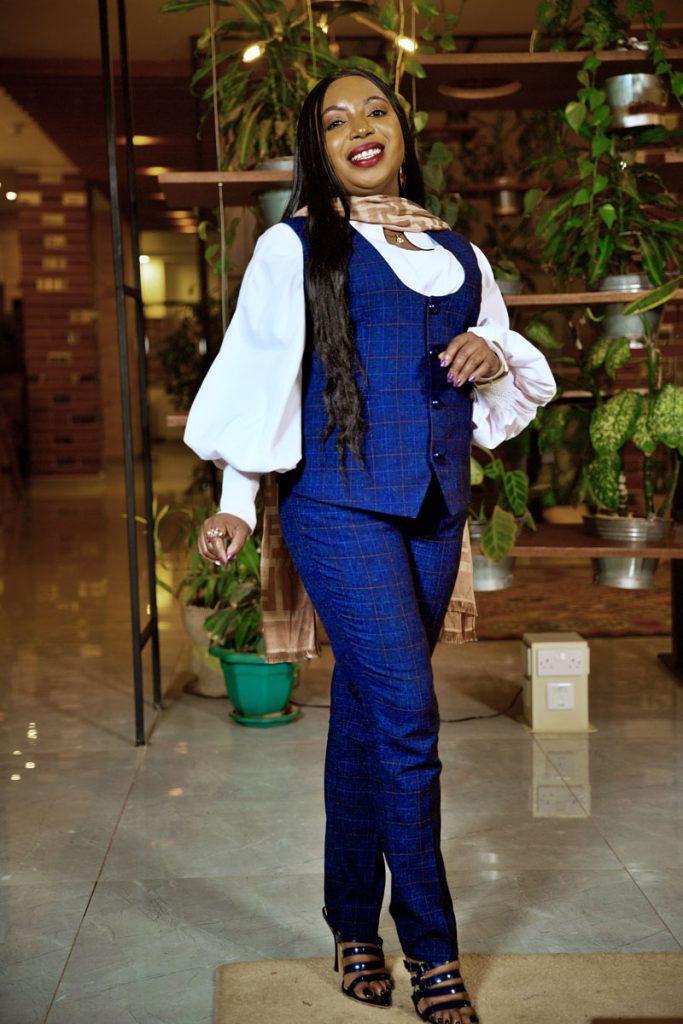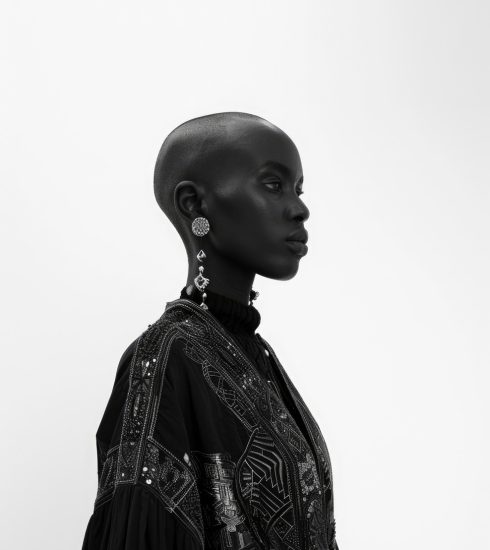- Fesheni Africa
- July 16, 2025
Darlings,
Let’s talk sustainability—not as a trending topic, but as the bold, revolutionary force it truly is in African fashion.
At Fesheni, we’ve always known that fashion isn’t just about what you wear—it’s a manifesto. And, beauty doesn’t always lie in the eyes of the beholder, sometimes a judging panel is the mirror mirror on the wall.
In this issue we’re putting the spotlight on pageantry, and sustainability. What it means, what it doesn’t mean, and why Africa is not just part of the conversation—we are the conversation.
Let’s decode a few terms, shall we?
Sustainable Fashion
Not just eco-friendly bamboo socks, recycled plastic sunglasses and organic cotton vibes. It’s a whole ecosystem of fashion one that respects people, planet, and profit. It’s about ethical labour, low-impact production, and lasting style over landfill trends. In short? Fashion that looks good and does good.
Slow Fashion
Is the antidote to that wear-it-once, toss-it-tomorrow madness. Less mass production, more meaning. From custom-fit Ankara suits to hand-dyed Batik, slow fashion champions craftsmanship, cultural heritage, and designs that live longer than a season.
Circular Fashion
Forget “one and done.” Circular is the new couture. It means clothes designed to be reused, repaired, recycled—not dumped. It’s the rebirth of textiles. It’s fashion that never dies, it just evolves. Think rental, resale, repair, and recycling.
Ethical Fashion
This is where morality meets runway. Where sweatshops and shady practices are replaced with fair wages, safe working conditions, and transparency. Fashion that doesn’t exploit—period. If it’s not ethical, it’s not elevated.
Eco-conscious / Eco-friendly Fashion
From natural dyes to biodegradable fabrics, this is fashion with a green heart. It reduces harm to the environment at every step, from farming, manufacturing, to sourcing and stitching.
Upcycling
The remix of the fashion world. Taking old materials or garments and transforming them into fabulous new pieces. Auntie’s headwrap just became your new clutch—hello, heirloom glow-up.
Zero-Waste Design
No scrap left behind. Designers plan patterns to use every inch of fabric. Precision meets artistry, and nothing hits the bin.
Regenerative Fashion
Beyond sustainability. This is about fashion that gives back to the Earth—like farming practices that restore soil and biodiversity. Fashion that actively seeks to rejuvenate the health of ecosystems and communities. Imagine clothes that heal the planet. Yes, darling. That’s the future.
Carbon Neutral Fashion
Because the planet doesn’t need more drama. Carbon-neutral brands measure and offset all emissions in their supply chain, balancing fashion with accountability.
Fashion Transparency
Where your clothes come from matters. Transparency means brands showing the who, what, where, and how behind every piece. Receipts, darling—we want them.
Natural Fibres
Cotton, hemp, linen, raffia, sisal, silk—Africa’s got them all. These materials are biodegradable, breathable, and rooted in the land. Your ancestors wore them for a reason. And more recently bamboo, banana fiber, and fish leather have joined the chat!
Traceability
It’s not enough to say “Made in Africa.” We want to know where, by whom, under what conditions. Traceability is about tracking your garment’s journey from seed to stitch.
And the truth is—African designers have been doing this for generations. We’ve been repurposing fabrics, upcycling heirlooms, crafting in small batches, and honoring our communities long before global fashion woke up. From handwoven Kente in Ghana to recycled brass jewelry in Kenya, our fashion is rich in history, soul, and circularity.
This issue is a celebration, and a challenge.
To designers: lead with purpose.
To shoppers: buy less, choose better, wear longer, support local.
To the industry: stop greenwashing and start revolutionizing.
Sustainability isn’t a sidebar in African fashion. It’s our DNA. It’s our heritage—and our future.
Let’s slay responsibly.
With style & sass,
Ciruma Angela Mbare
Editor-in-Chic, Fesheni Africa Magazine
Contributors
Plus
Disclaimer
Welcome to Fesheni Africa Digital Magazine! As we celebrate African creativity, heritage, and innovation, we aim to provide an inspiring and inclusive platform for artisans, designers, and fashion enthusiasts across the globe.





